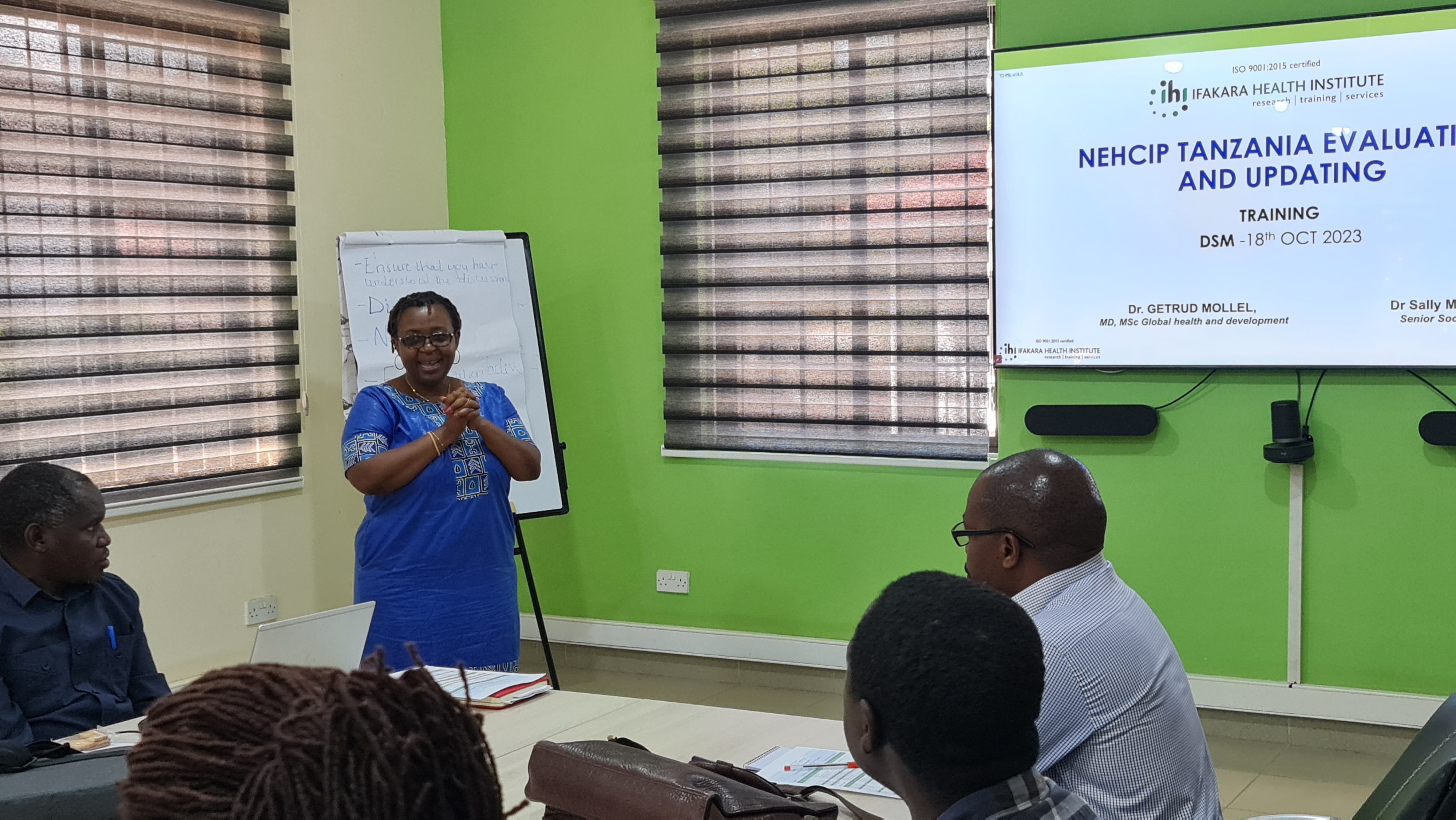
TRAINING: Stage is set for the nationwide healthcare plan update

The Ifakara Health Institute (Ifakara) in partnership with the Ministry of Health and the President's Office - Regional Administration and Local Government (PO-RALG) conducted a 2-day training for research assistants who will be deployed throughout Tanzania to gather essential data for the forthcoming update of the National Essential Health Care Intervention Package - Tanzania (NEHCIP-TZ).
The research assistants, who underwent training from October 19-20, 2023 at the Ifakara conference room in Dar es Salaam, will do the job under the supervision of Ifakara senior social scientist, Dr. Sally Mtenga.
The healthcare intervention package for Tanzania outlines the kind of health services people should get, where, and how. The plan also helps make sure that everyone in Tanzania can access good healthcare when they need it.
Through the initiative, Ifakara scientists aim to identify strategies to increase the coverage of essential health care interventions in Tanzania. Supported by funding from the World Health Organization (WHO), the initiative seeks to make sure that the national package is efficient, serves the needs of the people, and is based on the most recent information.
Learn more about the project here
10 years since last update
The main goal of this study is to take a good look at and update the National healthcare intervention package for Tanzania. A lot has changed in the healthcare scene over the last ten years, including new emerging health problems, influencing what's most important in healthcare strategy.
8 regions will be visited
A team of researchers will be visiting eight regions in Tanzania, each representing a different zone, including Kilimanjaro, Morogoro, Kigoma, and Lindi from the Northern, Eastern, Western, and Southern zones, and Njombe, Mbeya, Dodoma, and Shinyanga from the Southern Highlands, Southern Western Highlands, Central, and Lake zones, respectively.
They will evaluate healthcare services for various age groups, including newborns, children, women, adolescents, adults, and the elderly. These services will be assessed in categories like maternal and child health, adolescent health, infectious and non-communicable diseases, and emergency preparedness.
The work is set to start this month and run until October 2024.
"Leave no one behind"
Tanzania's commitment to the successful evaluation, updating, and implementation of essential health packages is seen as crucial in the journey towards Universal Health Coverage (UHC). The updated NEHCIP-TZ is expected to improve services at all healthcare levels, aligning with the Tanzanian Health Sector Strategic Plan V (HSSP V) and its mission to "leave no one behind."
